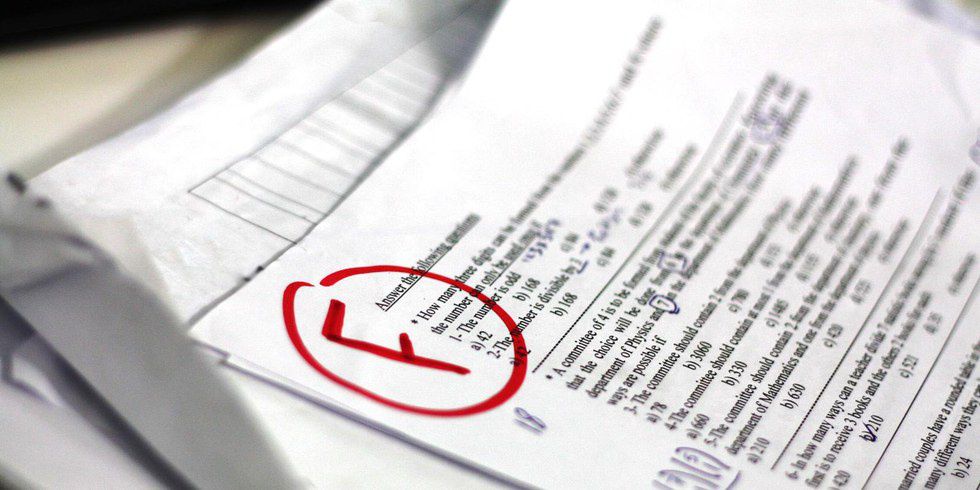Finals week is stressfulI. There's no denying it. Nevertheless, there are some things you can do to make it easier not only to do well on your exams and papers but to not constantly feel like you're dying inside. I have to admit, one reason for writing this article is to remind myself to do these things. That doesn't however, make them any less valid.
1. Exercise
Numerous studies have demonstrated that exercise is good for your brain. Plus, it produces chemicals which make you feel better and less stressed. You don't have to commit to a full-on two hour sweaty gym workout if you don't have that kind of time, just getting up and doing a few jumping jacks during study breaks can help.
2. Do as much as you can ahead of time
While studying for an exam weeks ahead of time may be counterproductive, working on papers and projects ahead of time is extremely helpful. If you have these kinds of finals, do them before exam week so that that week you can focus on studying for exams as much as possible.
3. Break up your studying
I am absolutely not saying you should go have a Netflix marathon after studying for a few minutes, but you should take short five to ten minute breaks every now and then. Your brain needs time to rest so it can absorb information. You can also try alternating between different academic subjects so that you don't get too bored with one thing.
4. Study in different places
I find that if I study in one place for longer than about three hours I start to go stir crazy and can't concentrate as well. Plus, there is some scientific evidence that studying in different places helps with memorization and recall. Something about associating a specific place with certain information helps you remember it. Even just changing rooms can help.
5. Make a schedule
It doesn't have to be minute-by-minute, but do lay out what type of homework/studying you are going to do on a given day. This helps you to manage your time well, plus it's really satisfying to check off boxes and cross things out as you do them. You may also want to include exercise, chores and anything else you need to do in your schedule so that you don't fall behind.
6. Maintain your normal routine as much as possible
If you normally go to bed at 10:00 o'clock every night, go to bed at 10:00 the night before your exam. Same goes for your eating habits. Maintaining the same routine makes you less stressed because it just feels like a normal day. If you suddenly change everything up (start exercising a ton, get extra sleep, etc.) in hopes that it will make you smarter, you may instead just end up making yourself anxious and out-of-sorts, which will make you perform poorly on exams. Of course, if your normal habits include staying up until 4:00 am on a regular basis and eating one meal a day, I'm not sure what to tell you.
7. Avoid eating junk
It's pretty simple: healthy food is better brain fuel. Although it may be tempting to fuel late night study sessions with a constant stream of junk and coffee, you will just end up more tired (not to mention sick, probably). Of course, as mentioned above, don't suddenly change your eating habits radically or it may throw you off.
8. Talk to professors
If you're unsure about any of the material, talk to your professor about it. Additionally, within reasonable limits, if you feel like everything is due on one day, consider asking for an extension or otherwise working out a way to make your schedule more reasonable. Most of the time, professors want to help you succeed.
9. Remind yourself that it'll all be over soon
If you start to get too depressed about studying constantly, remember that in a few days it'll all be over. Don't take this as an excuse not to try your best, just remember that the stress only lasts for a few days and you will get through it.
10. Remember that failing an exam isn't the end of the world
Don't try to fail your exams, but honestly, will you remember this in 20 years? Unlikely. An individual exam is not going to end your career and failure is most definitely a part of sucess.


























